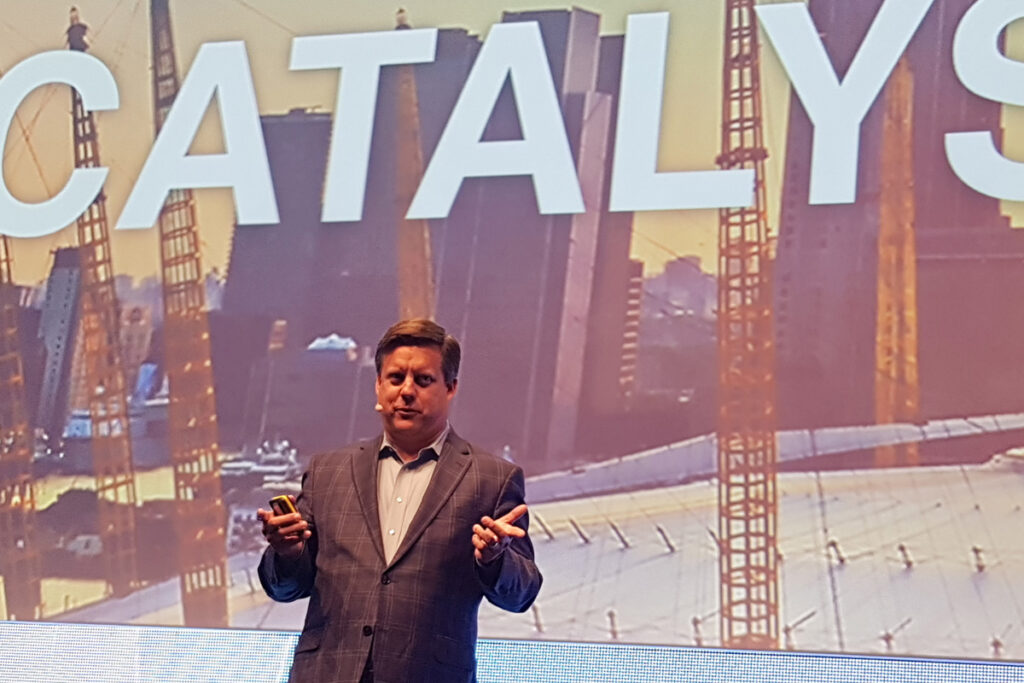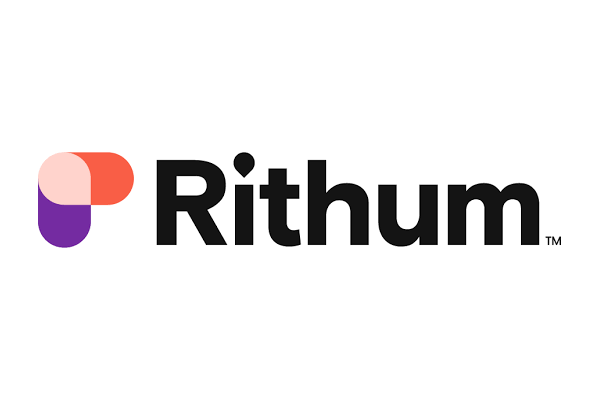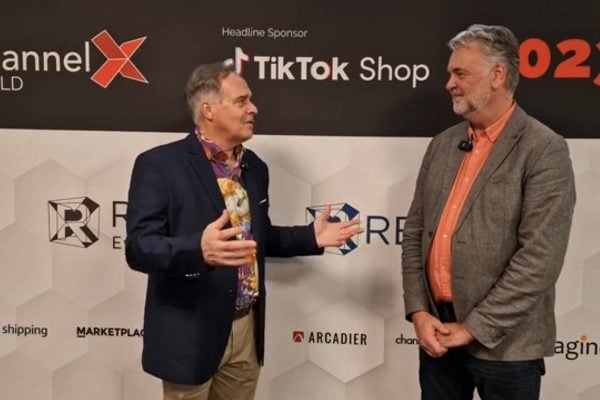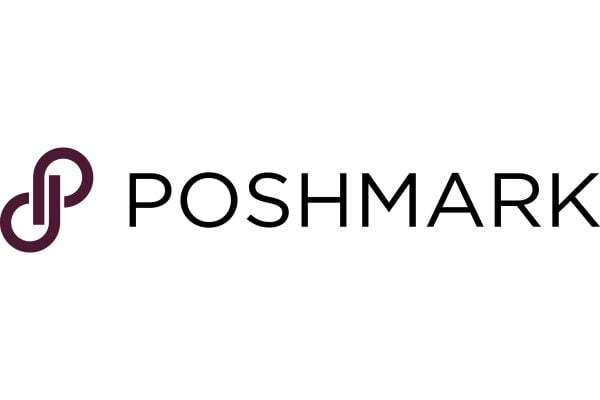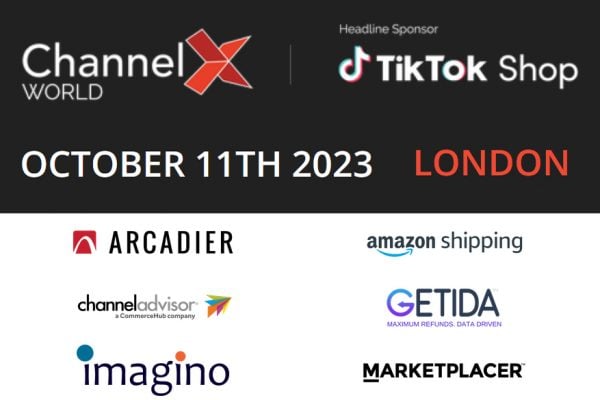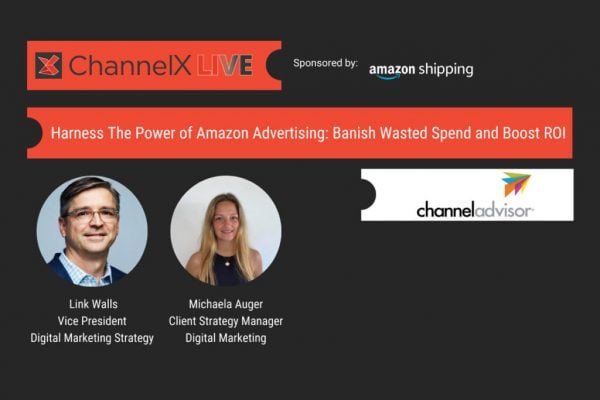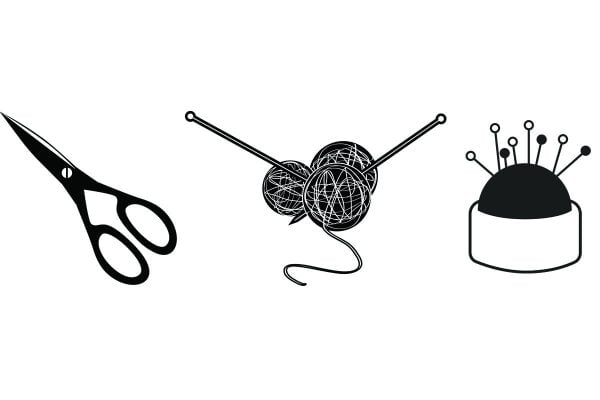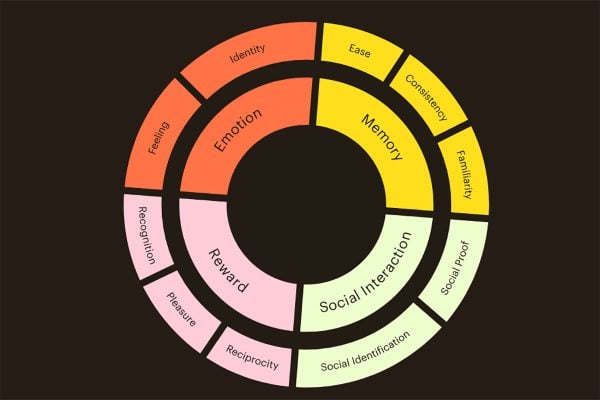Last year in his Catalyst Keynote, ChannelAdvisor CEO David Spitz focused on five key topics: Amazon; Ecommerce; Brands; Mobile; and Logistics. A lot of these predictions are starting to come all at once but China, Data, Voice Commerce and Blockchain are all coming to the fore. Retailers, for example Nike, are jumping on board with marketplaces and from conversations David has had with retailers Amazon are in the top 3 considerations for their strategy in 2018.
This year in his Catalyst Keynote, David invited the audience to vote in real time on the topics he would talk on. The first topic voted for was Amazon:
Amazon
Amazon are the fifth largest UK retailer but still only account for 4.2% of retail. Tesco are at 12.5% and Sainsbury’s and Asda combine for 13.4% – but much of their business is grocery. To put Amazon into perspective for a more general retailer David revealed that John Lewis have a 3.5% market share in the UK.
David explained that Amazon are maniacal in their aim to control the customer experience and obsess over how partners such as third party delivery companies could impact their service. That’s why they’re pouring concrete constantly to build new fulfilment centres and expand their own logistics service.
Ad revenue on Amazon is no a $2.8bn business – bigger than either twitter or Snapchat and if you’re not using Amazon advertising then you should considering it. If you’re not leveraging Amazon Marketing Services then you need to get on board according to David.
Brands
The second topic chosen by the audience was Brands and David opened by saying he believe Brands will increasingly play an important part in getting consumer to purchase their products. In the UK 80% of retail is offline and whereas in the past Brands could rely on retailer to promote their products, today and online it’s a different story and Brands need to get active to drive traffic.
Companies like Casper (roughly equivalent to Eve in the UK) are revolutionising online sales of mattresses by offering a 100 day free returns and reimagining the mattress with memory foam into a form factor that fits in an easily shippable box. Their market share is already resulting in traditional high street mattress retailers closing shops.
Amazon themselves are launching Amazon Basics and other private label brands as 51% of millennials have no real preference between brands vs private brands. It’s also never been easier for small private brands to break into the market with crowd funding to kick start their operations and social media to propel them to fame. Small manufactures are seeing growth faster than the large established brands.
Consider that in the past in offline retail it was all about having the clout to get premium shelf space with a retailer – that’s if they’d consider stocking your brand at all. Online it’s simply about marketing and anyone can list on marketplace, use paid search and social to get eyeballs on their products which levels the playing field for emerging brands.
Digital marketing has to be a core competency for brand – for instance Dollar Shave Club got 25m views on a 90 second YouTube commercial that cost just $4,500 to produce and was free to upload. Compare that to an ad on the US Superbowl and there’s no comparison in costs.
Data
David used an example of Nike vs Adidas sales to show the importance of data and how seeing where sales are taking place can influence where you put your marketing dollars. The teens showed Adidas winning not in the centre of LA but in the suberbs so that works be where focus of you wasn’t to sell shoes and get maximum return for your spend.
If you’re not using the masses of data available today you’ll be missing out on opportunity.
Voice
Interestingly only one person at Catalyst had ordered on a virtual assistant using voice.
David demonstrated the difference between Amazon Google and Apples devices for shopping. You can forget Apple, Google works but it’s a bit clunky (And there’s no shopping on Google in the UK, but in Amazon it’s a seamless experience and just works.
The big difference with voice is that most of the time the offered choices are a single choice. Will consumers ask for toothpaste or Colgate toothpaste? Will they accept Amazon’s suggestion on Echo and how can a brand get to be the suggested product? Amazon will consider everything including which products have the lowest returns rate to decide which product gets to be Amazon’s choice.
Vice shopping could be one off the most disruptive areas of commerce over the next five years. If you’re in ecomnerce and don’t have a voice device you need to get one to see how consumers are usibg voice search.
What’s new?
David closed his keynote with what’s new at ChannelAdvisor and how logistics will be increasingly important.
